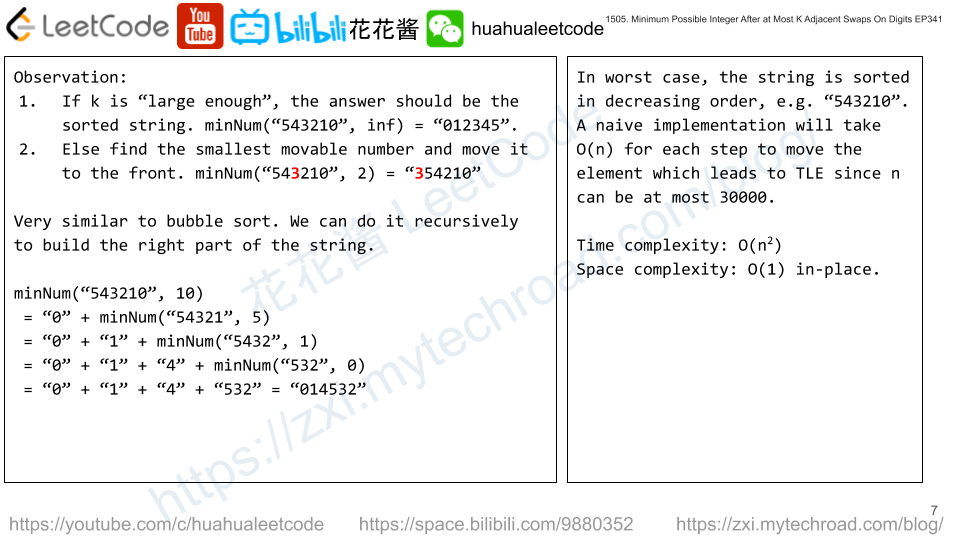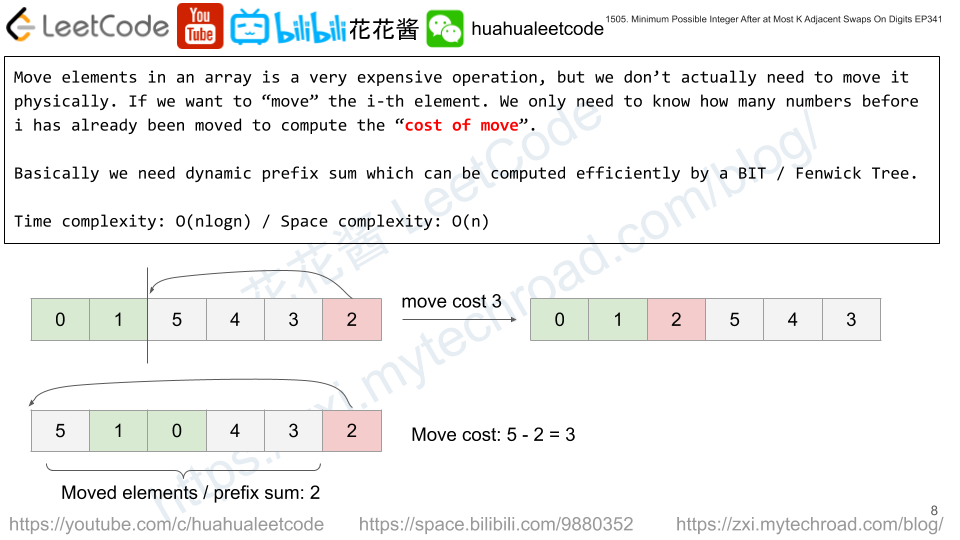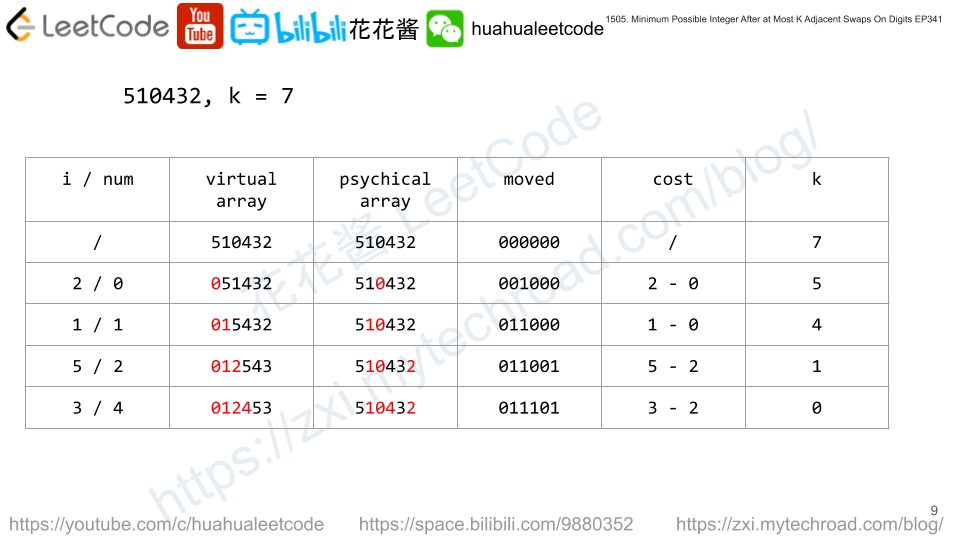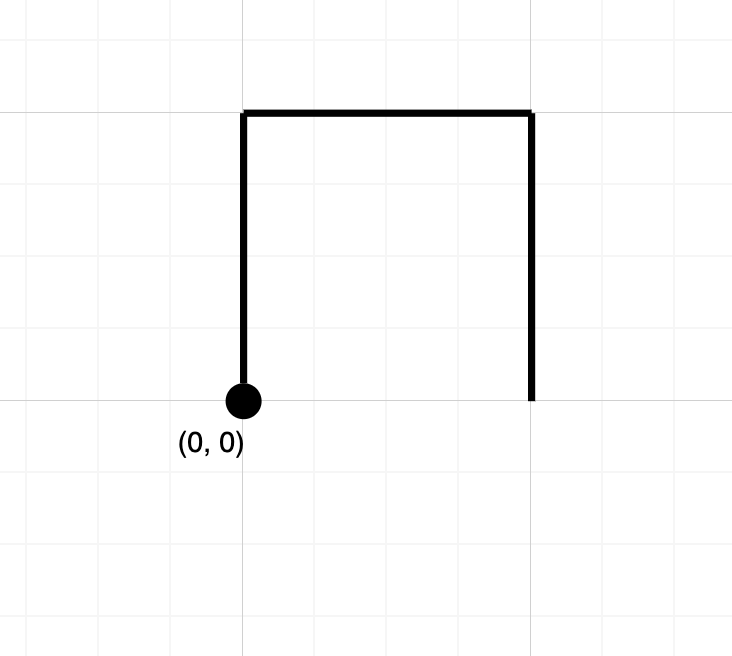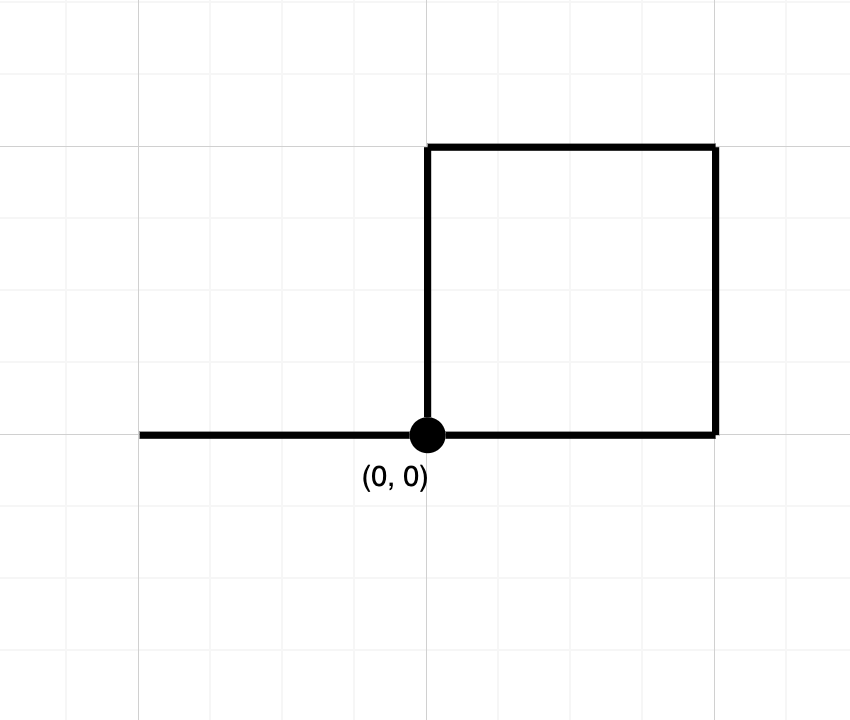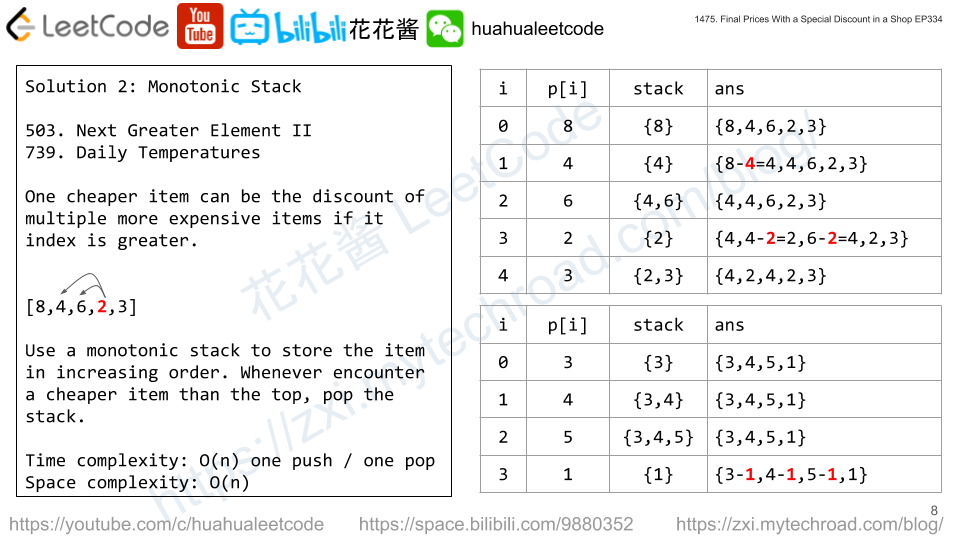Given a string s and an integer array indices of the same length.
The string s will be shuffled such that the character at the ith position moves to indices[i] in the shuffled string.
Return the shuffled string.
Example 1:

Input: s = "codeleet", indices = [4,5,6,7,0,2,1,3]
Output: "leetcode"
Explanation: As shown, "codeleet" becomes "leetcode" after shuffling.
Example 2:
Input: s = "abc", indices = [0,1,2]
Output: "abc"
Explanation: After shuffling, each character remains in its position.
Example 3:
Input: s = "aiohn", indices = [3,1,4,2,0]
Output: "nihao"
Example 4:
Input: s = "aaiougrt", indices = [4,0,2,6,7,3,1,5]
Output: "arigatou"
Example 5:
Input: s = "art", indices = [1,0,2]
Output: "rat"
Constraints:
s.length == indices.length == n1 <= n <= 100scontains only lower-case English letters.0 <= indices[i] < n- All values of
indicesare unique (i.e.indicesis a permutation of the integers from0ton - 1).
Solution: Simulation
Time complexity: O(n)
Space complexity: O(n)
C++
|
1 2 3 4 5 6 7 8 9 10 |
// Author: Huahua class Solution { public: string restoreString(string s, vector<int>& indices) { string ans(s); for (int i = 0; i < indices.size(); ++i) ans[indices[i]] = s[i]; return ans; } }; |
Java
|
1 2 3 4 5 6 7 8 9 |
// Author: Huahua class Solution { public String restoreString(String s, int[] indices) { char[] ans = new char[s.length()]; for (int i = 0; i < s.length(); ++i) ans[indices[i]] = s.charAt(i); return new String(ans); } } |
Pyhton3
|
1 2 3 4 5 6 |
class Solution: def restoreString(self, s: str, indices: List[int]) -> str: ans = [None] * len(s) for i, idx in enumerate(indices): ans[idx] = s[i] return ''.join(ans) |

